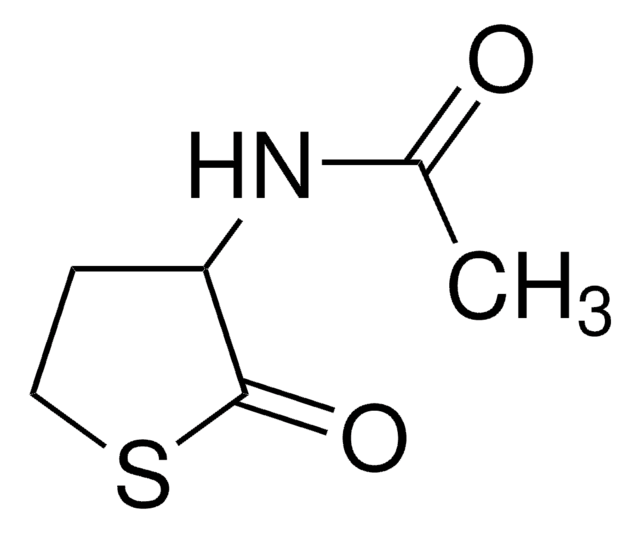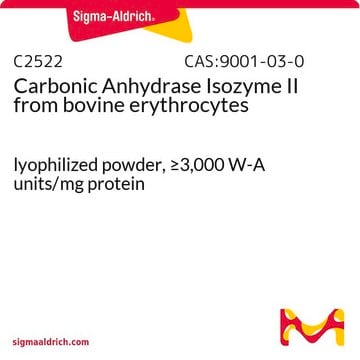H6503
L-Homocysteine thiolactone hydrochloride
≥98% (TLC)
Sinónimos:
L-2-Amino-4-mercaptobutyric acid 1,4-thiolactone hydrochloride
About This Item
Productos recomendados
product name
L-Homocysteine thiolactone hydrochloride, ≥98% (TLC)
Quality Level
assay
≥98% (TLC)
form
powder
color
white
mp
185 °C
application(s)
detection
peptide synthesis
SMILES string
Cl[H].N[C@H]1CCSC1=O
InChI
1S/C4H7NOS.ClH/c5-3-1-2-7-4(3)6;/h3H,1-2,5H2;1H/t3-;/m0./s1
InChI key
ZSEGSUBKDDEALH-DFWYDOINSA-N
¿Está buscando productos similares? Visita Guía de comparación de productos
Application
- Effects of DL-homocysteine thiolactone on cardiac contractility, coronary flow, and oxidative stress markers in the isolated rat heart: This investigation demonstrates the effects of DL-homocysteine thiolactone on heart function, offering insights into its use in cardiovascular research and potential therapeutic applications (Zivkovic et al., 2013).
- Homocysteine is a novel risk factor for suboptimal response of blood platelets to acetylsalicylic acid in coronary artery disease: The study explores how L-homocysteine thiolactone could affect platelet responses in therapy for coronary artery diseases, pointing to its importance in cardiovascular therapeutics (Karolczak et al., 2013).
Biochem/physiol Actions
Storage Class
11 - Combustible Solids
wgk_germany
WGK 3
flash_point_f
Not applicable
flash_point_c
Not applicable
ppe
Eyeshields, Gloves, type N95 (US)
Certificados de análisis (COA)
Busque Certificados de análisis (COA) introduciendo el número de lote del producto. Los números de lote se encuentran en la etiqueta del producto después de las palabras «Lot» o «Batch»
¿Ya tiene este producto?
Encuentre la documentación para los productos que ha comprado recientemente en la Biblioteca de documentos.
Los clientes también vieron
Nuestro equipo de científicos tiene experiencia en todas las áreas de investigación: Ciencias de la vida, Ciencia de los materiales, Síntesis química, Cromatografía, Analítica y muchas otras.
Póngase en contacto con el Servicio técnico











